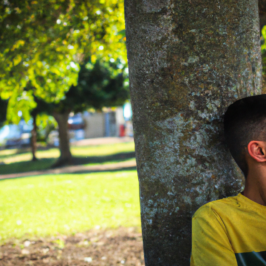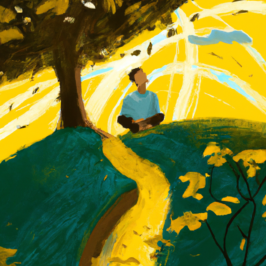
By: Brian Warner
For as much as some of us try to avoid conflict, it’s important to remember that it is a neutral term. It may not feel good when it’s happening to us, but conflict itself isn’t always a bad thing. Its highs and lows hold doubly true on the world stage. Who would look back at the debate around marches and sit-ins in the civil rights and disability rights movements, or the die-ins during the AIDS crisis and say that activists shouldn’t have fought? Can the same be said about acts of terror and war, though? Conflict is scary, whether it’s constructive or destructive, healthy or unhealthy, between two partners or two halves of the country, but whatever form it takes, it usually is followed by change. Maybe it’s change in ourselves or change around us, but conflict can always be counted on to show a sign of where we’re headed.
The January 6 riot against the Capitol will likely hold a unique space in American history. On the one hand, it could be called the culmination of every little conflict that preceded it on the news and in people’s living rooms through the past few years. It was, literally, the end of the past administration. It was also, however, the start of a new phase in our country’s strange new collective psyche. After all, can you remember any past election where a candidate’s yard sign stayed in front lawns for more than a year after the results came in? It established a new norm in American life that finally everything was up for debate, with both sides granted permission to live in diametrically opposed realities. And as we learned over the past few years, Americans love to debate.
The obsession much of the country seems to have with conflict isn’t by accident. Like a gambler getting a rush of dopamine and serotonin on a big win, outrage, at some level, feels good. Down to the neurons firing off inside our brains, we’re rewarded for being around the danger and fear that comes from conflict, whether it’s physical (participating in a riot) or emotional (participating in an argument). At the first sign of danger the brain goes into protection mode, shutting down executive functioning like emotional regulation, trust building, and expressing empathy. The brain reroutes its energy toward producing survival hormones like dopamine, cortisol, adrenaline, and noradrenaline. Our heart rate goes up, our air passages open, pain is dulled, major muscle groups are stimulated. This sensation is enough to stick in our minds and draw us back – and back, and back, and back like an addiction for some people. Jonah Berger, a University of Pennsylvania marketing professor and researcher on how emotion contributes to the spread of news, described this to Smithsonian by saying, “Anger is a high-arousal emotion, which drives people to take action. It makes you feel fired up, which makes you more likely to pass things on.”
This is especially concerning when it comes to misinformation. In a 2020 study, researchers found that when emotions are running high, misinformation that confirms preexisting ideas (say, that there was no way one candidate could’ve won over another) were much easier to believe. As anger made people more committed to ideas they already agreed with and anxiety made them more receptive to new fringe ideas, partisanship and engagement with misinformation became even more deeply entrenched across participants.
In her closing remarks at the 2018 White House Correspondents Dinner, comedian Michelle Wolf said:
Did you used to date [Trump]? Because you pretend like you hate him, but I think you love him. I think what no one in this room wants to admit is that Trump has helped all of you. He couldn’t sell steaks or vodka or water or college or ties or Eric [Trump]. But he has helped you. He’s helped you sell your papers and your books and your TV. You helped create this monster and now you’re profiting off of him.
Amanda Ripley, author of High Conflict: Why We Get Trapped and How We Get Out gives a name to this: conflict entrepreneurs. She defines it as “people who exploit high conflict for their own ends” (though it’s important to note that this doesn’t necessarily refer to anyone reporting the news, but people who make specific choices and take specific steps to create further conflict). Three years after Michelle Wolf’s speech, as the U.S. watched its first transfer of power to include five deaths, 138 injuries to police officers, and at least twenty hospitalizations, news channels did serious business.
Nearly 29 million people watched afternoon coverage of the riot and nearly 33 million watched primetime coverage across ABC, CBS, NBC, CNN, Fox News, and MSNBC. Online, between September 1, 2020 and February 2, 2021, 8,200 articles were published with the phrase “Stop the Steal” or #StopTheSteal, with more than 70,000,000 engagements (likes, comments, and shares) across social media. Social media platforms, many on which the Capitol riots were planned, have been specifically designed to deeply connect with our brains’ reward systems and, in Facebook’s case, indulge our feelings of outrage by serving more and more polarizing content. In an effort to keep people scrolling for as long as possible, these companies push outrage-driven high engagement posts to the top of our newsfeeds (at unexpected times to create a habit more successfully) for a quick shot of survival hormones like dopamine and cortisol.
Similarly, the yelling we often associate with commentators on cable news is likely no coincidence; it’s hardwired into our brains that we notice an angry voice much faster than a happy or neutral voice as the brain instantly focuses its attention on what could be a threat. And whether we realize it or not in the moment, strong emotions are highly contagious. A 2009 study found that non-lonely people who spent time with lonely people were 52% more likely to start feeling lonely, too. Psychologist and researcher Graham Davey, Ph.D., has even theorized that these feelings live on after we’re exposed to conflict, making us more attuned to anger and finding it where we otherwise wouldn’t, saying, “these experiences will affect how you interpret events in your own life, what types of memories you recall, and how much you will worry about events in your own life.”
This is a major problem when we realize that Americans are only spending more and more time around conflict entrepreneurs. Not only are more of us watching the three major cable news channels (CNN, Fox News, and MSNBC), but we’re spending more of our time watching, too. At the same time, worldwide we’ve made room for an extra hour of social media screen time every day since 2012, with nearly a third of U.S. adults regularly getting their news from Facebook.
Should it be any surprise, then, that we’re all feeling angrier, more divided, and more afraid to share our thoughts than ever before? That siblings, spouses, parents and children, decades-long friends have parted ways over irreconcilable political differences? Or that, for some, as their political bubble gets smaller, their peace of mind only gets worse? In a poll shortly after the 2016 election, 16% of respondents said that they’d stopped talking to a family member or friend because of politics; while that number may look small, it evens out to 1,028 people (or double if we take the other half of the relationship into account, too) who have lost a relationship that was once important to them. In an interview with the Minneapolis Star Tribune, Carrie Borchardt described the isolation she feels of constantly dancing around contentious topics with her family, saying, “We have the superficial conversations you’d have in a waiting room with a stranger… It makes me sad and lonely to think they don’t really know me.”
No one goes looking for the cruelest ways to turn against or turn away from the people they love. The kind of misinformation that can pull someone farther and farther away from healthy connections and toward a cycle of constant conflict shows up on both sides of the aisle. Because of this, it’s important that as conflict enters our lives, we remember another term from Amanda Ripley, crock pot. She defines it as, “a shorthand term for the issue that a conflict appears to be about, on the surface, when it is really about something else.” We are angrier and more divided than before, but we are also more afraid and lonelier than before, putting people in a good position to be not just at conflict with others but also with themselves. In dealing with conflict, finding shared values and the emotions that guide political views can create a powerful connection that sometimes even breaks down tribal barriers and reinforces relationships. Calm, steady empathy on both sides can do for relationships what Rep. Andy Kim does for the Rotunda. We never need to validate views that go against our own values, but we can validate openness about feelings expressed in a healthy, respectful way.
Organizations like Parents for Peace have even formed in recent years to take on the daunting, yearslong task of “deprogramming” people taken in by extremist ideologies. Combining practices like family counseling, addiction recovery, traditional therapy, and cult deprogramming, Parents for Peace’s methods have even drawn attention from researchers at Harvard University and Boston University as conflict and polarization still fracture families. Its Executive Director Myrieme Churchill often repeats the same instructions to people seeking help: “Never argue with extremists; ask them probing, open-ended questions. Treat them with respect, not derision. And work on your own problems. Sometimes the key to helping a family member is addressing the household’s broader dysfunction.”
No emotion is bad. Fear keeps us safe. Anger ensures we’ll be treated fairly. And sometimes, when we’re with someone high on the conflict around them, we take the bait and fight with them against our better judgement with the glimmer of hope that they’ll come back to us. That if we debate well enough or yell loudly enough they’ll remember that things weren’t always so heated. Conflict shows a sign of where we’re headed, and with recent sentencings of dozens of people for their roles in the January 6 attack, with conspiracy theorist Alex Jones being found liable for defamation against parents in Newtown, with Rohingya Muslims filing a lawsuit against Facebook for its role in the Myanmar genocide, there’s an argument to be made that there is still hope we’ll be able to back away from our outrage with each other and look toward safer, sounder, more constructive ways to make ourselves heard.
DISCLAIMER
The information, including but not limited to, text, graphics, images and other material contained on this website are for informational purposes only. No material on this site is intended to be a substitute for professional medical advice, diagnosis, or treatment. Always seek the advice of your physician or other qualified healthcare provider with any questions you may have regarding a medical condition or treatment and before undertaking a new health care regimen, and never disregard professional medical advice or delay in seeking it because of something you have read on this website.






